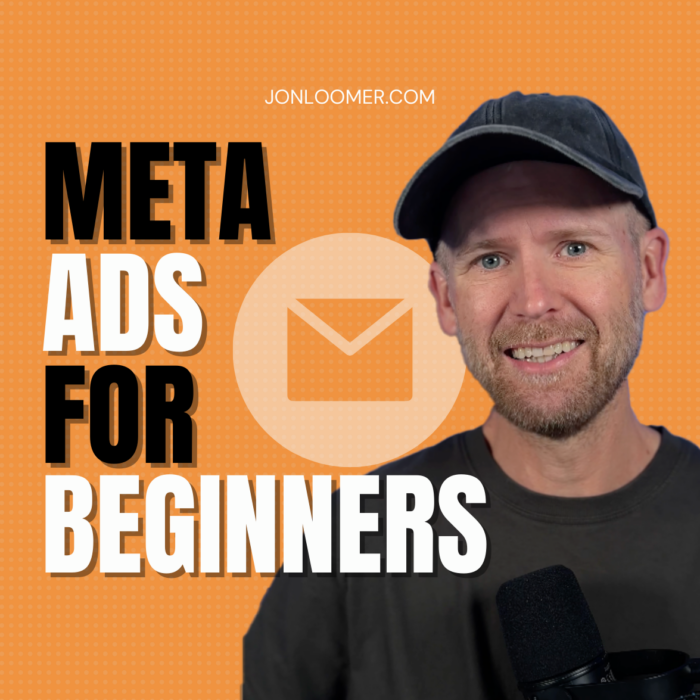My advertising philosophy is the core foundation behind the content found on the many pages of this website. While I launched this website in 2011, these core philosophies have remained rather consistent with time.
While there is overlap between them, these pillars are my core advertising philosophies…
Experiment Often
What works for me might not work for you. While you should understand the basics of how everything works and the rules involved with the platform, there is no better way to answer strategic questions than to try it out yourself.
The willingness to experiment is the number one skill of a successful Meta advertiser. Those who are most successful with Meta ads have an underlying curiosity that others don’t.
Align your goals with a basic understanding of how things work and experiment. Try it out. See what happens.
While the way that others do things may provide initial structure and inspiration, do not allow the approach of others to box you in. Use tools in ways they weren’t intended. Find creative solutions to your unique problems.
Discover what works for you.
You do not expect perfection. You know that the result of experimentation is that some attempts will succeed and many will fail. But you will learn from that failure and apply it to your next attempt.
Be curious. Be creative. And have fun experimenting!
Don’t Blame the System
“Facebook ads don’t work.”
Well, no. Facebook ads don’t work for you. The way that you’re using them. But they can work for you.
People love to blame the platform or algorithm or other mysterious thing for why something doesn’t work for them. Change this perspective.
Facebook ads aren’t some magical switch that will make you rich. And maybe that’s part of the misconception. You still need to know what you’re doing.
If ads aren’t working for you, why aren’t they? What factors are making success less likely? Is it due to a challenging industry, a bad product, or a poorly functioning website? Is it something else?
There are specific reasons that Facebook ads aren’t working for you. Maybe there are roadblocks to your success that need to be addressed.
Take some responsibility and stop blaming the system.
Understand the Algorithm
The successful Meta advertiser strives to understand how the ads algorithm works. It’s incredibly powerful, but it’s not perfect. It’s those imperfections that are so important to anticipate.
The algorithm is super literal. When you optimize for an action, the only focus of the algorithm is to get you as many of those actions as possible at the lowest cost. That’s it.
So, if you want purchases, optimize for purchases. This is where the algorithm shines.
But it can go the opposite way as well. If you tell Meta that you want link clicks, you’ll get link clicks. Lots of them. But the algorithm doesn’t care whether these people do anything else. You probably do.
Understand why this is is possible. It has everything to do with how the algorithm works.
Accidental clicks, bots, and click-happy people will lead to more clicks. They may be especially common within certain placements (like Audience Network). These clicks are unlikely to lead to more than that first action.
But if you optimize for clicks, the algorithm will search these clicks out. And it will assume you’ll be happy.
Accidental purchases or bot-made purchases, though, aren’t an issue. This is why you need to be concerned about the placements used when optimizing for link clicks or landing page views, but not when optimizing for a conversion.
Be a student of the algorithm so that you can understand this. Know how it can benefit you or hurt you, and adjust.
Embrace “It Depends”
If you’ve ever asked me a question about Facebook ads, there’s a high probability that I started my answer with, “It depends.”
It’s not a copout. But too many questions about Facebook advertising assume an easy answer.
This stuff isn’t black and white. We can’t give universal answers to questions that require nuance.
Why something happened or what you should do will depend upon your industry, product, copy, creative, budget, website, reputation, and a whole lot more.
Embrace that “it depends.” If you’re asked questions about what to expect from advertising, know that starting with “it depends” is okay. You can provide a general range of possibilities to expect, but make it clear that these things are rarely predictable.
It just doesn’t work that way.
Embrace that so much as an advertiser is actually out of your hands. Some variables that are outside of your control will be an advantage. Some will put you behind the 8-ball.
But understand these factors and how they will impact you.
Update Your Assumptions
I get it. You’ve been advertising for years. You were running Facebook ads before they were Meta ads. You’ve found an efficient system that works for you. But don’t forget to update your assumptions.
Things change.
It’s important to remember that Meta advertising today looks nothing like it did five or 10 years ago. We shouldn’t be using five or 10-year-old strategies.
Just think about how much has changed during the past few years since iOS 14. Attribution, optimization, and targeting all took a hit as a result of iOS users opting out of tracking.
But we’ve also seen changes with targeting generally. Meta has removed countless interests and behaviors. The “Advantage” expansion products allow the algorithm to target people outside of the detailed targeting, lookalike audiences, and even custom audiences that you specify.
New restrictions were added to certain special ad categories due to legal pressures. You aren’t able to target people the way you once did.
Meta is pushing us more and more towards accepting a more significant role of automation and optimization that is outside of our control. This applies to ad copy and creative and distribution. It’s much more hands-off now.
It surely took some of us a while to adjust our strategies to these changes. But you must.
You need to adjust your assumptions about what works and doesn’t work. You should revisit those strategies that, at one time, you’d never consider.
Stay fluid.
Be Ethical to a Fault
This is a rule I learned very early on with Facebook ads, and in my business. Do not give anyone a reason to suspect that you’re doing something unethical. This means doing the right thing as a habit.
It also means knowing the rules inside and out. And it means doing all that you can to remain in line with those rules.
Ignorance isn’t an excuse.
Some of the rules within the Meta ad guidelines may not be obvious. Read and know them.
As a Facebook advertiser, it doesn’t mean bending the rules. It doesn’t mean you can venture into gray areas that lead to great results (briefly, at least).
Being ethical is a commitment with long-term benefits. Bending the rules can have short-term benefit with huge long-term risks. You can’t afford to get your ad account or page or business manager shut down.
And I know, there are sometimes very innocent people who get caught in those things as well. But increase your odds by simply being ethical to a fault.
Know the line you will not cross, whether it’s written or not. Know that others will cross that line and benefit, at least for now.
But your business and reputation are too important to risk it.
Keep it Simple
When it comes to Meta advertising, less is more.
Stop overthinking optimization. What is the action you want? Optimize for that.
Stop wasting your time with targeting. Meta wants you to go broad now. In most cases, you should.
Stop messing with placements. You think some placements don’t work. So what? The algorithm will adjust. Use all placements.
You usually don’t need to create a bunch of ad variations. You can use the multiple text options and standard enhancements. But otherwise, you’re just watering down your results.
You rarely need all of those ad sets. You were probably creating them to test different audiences. This might result in audience fragmentation. In most cases, you keep it to the one ad set.
There are always going to be exceptions, especially with bigger budgets. But stop overthinking this stuff.
Keep it simple.
Metrics That Matter
Meta gives you a whole lot of metrics that you can distract yourself with. Be careful.
There are primary metrics that you should care about most. These are things like Total Desired Actions and Cost Per Desired Action. Everything else is secondary and tertiary.
Secondary and tertiary metrics are interesting, but they only provide perspective. Do not obsess over them.
Things like CPM, CPC, and CTR aren’t primary metrics. Advertisers are often fooled into believing that if you improve these, you’ll improve Cost per desired action. That’s rarely the case.
Add columns to your report for that you will watch. Allow those secondary metrics to help tell a full story and explain why you’re getting the results you’re getting.
But don’t focus on those as if they are primary metrics. Simplify your approach to reporting.







